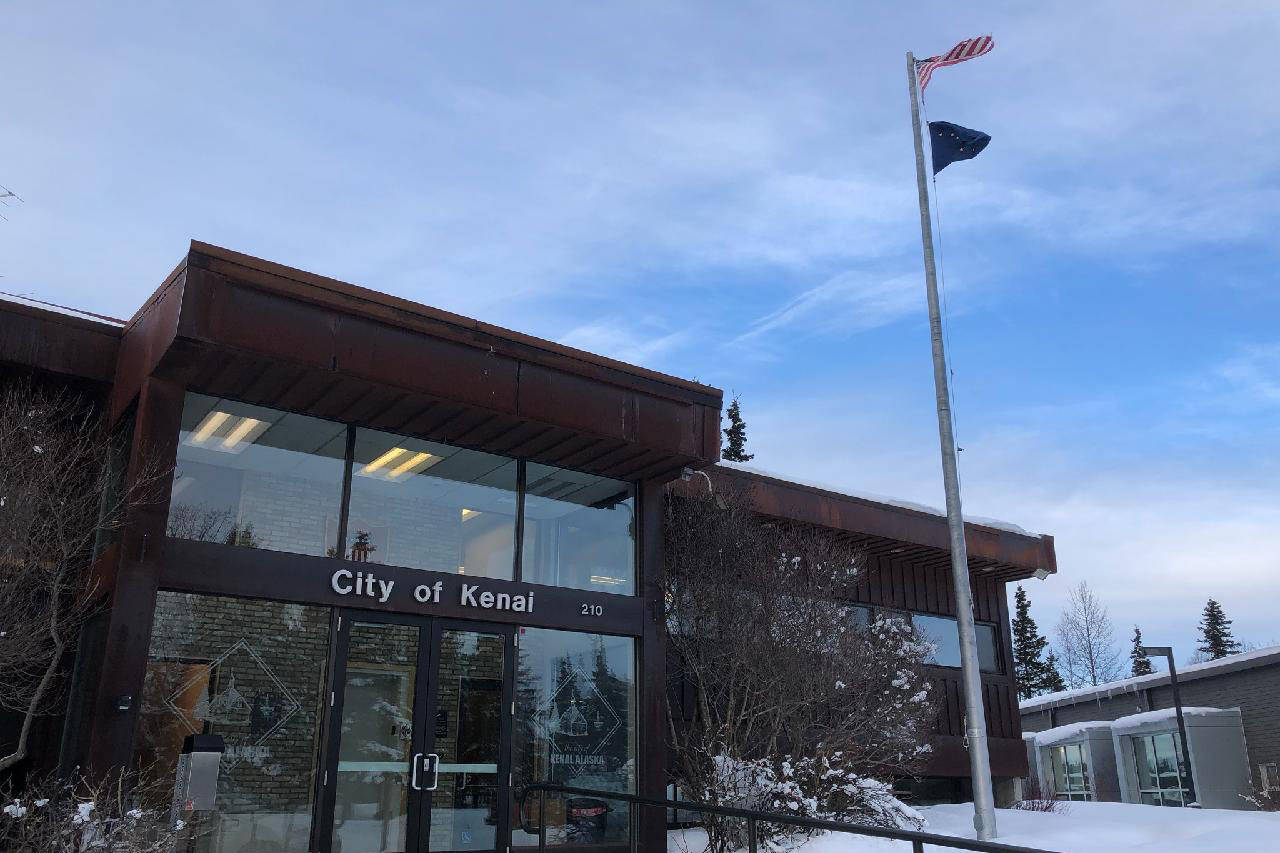The City of Kenai is fleshing out the logistics of a post-COVID world for residents.
Kenai City Manager Paul Ostrander issued an executive order last March that said penalty and interest would not accrue on commercial and residential water and sewer accounts. Additionally, those services would not be shut off during the city’s disaster declaration as long as the customer certified that they had been adversely impacted by COVID-19.
Though the executive order takes precedence over city code, those protocols, with others, would expire along with the city’s disaster declaration, which is set to expire at the end of this month.
Other things allowed under the declaration include what Ostrander has called “COVID leave,” or sick leave for city employees with COVID-related illness and greater flexibility in how the city can respond to the pandemic.
The Kenai Peninsula Borough Assembly voted earlier this week to extend the borough’s emergency declaration, which will allow borough entities such as the Office of Emergency Management to continue coordinating large-scale COVID-19 vaccination clinics. The City of Soldotna’s declaration is also set to expire at the end of this month.
The Kenai City Council has previously extended their declaration on a monthly basis, however, some council members have said that they are ready to enter a phase of “recovery.” Council member Teea Winger, for example, said at the council’s Feb. 17 meeting that she would not vote again to extend the declaration if there was not also a statewide declaration in effect.
The State of Alaska’s disaster declaration expired in February, which central peninsula city managers said has little impact on how they operate. Primarily, the expiration of the state’s declaration removes COVID-19 travel restrictions that city employees were subject to when the declaration was in effect.
In a memo to the Kenai City Council, Kenai City Attorney Scott Bloom said that the balance due on the city’s delinquent utility accounts will begin to accrue penalty and interests and will be subject to shut off once the declaration expires. Currently, there are 29 accounts that completed paperwork to avoid shutoff with a balance of $21,000. Delinquent accounts that did not submit paperwork are subject to shut off.
“Administration is seeking guidance from the Council on how to proceed with the delinquent accounts that have submitted COVID-19 impact paperwork when the Emergency Declaration ends,” Bloom wrote.
In the memo, Bloom suggested that city administration approve some form of his “option two,” which would see the council enact an ordinance allowing for a grace period. This would not change existing city code and would allow for a grace period following the declaration’s expiration. Customers would have time to catch up without facing shutoffs or accruing penalty or interest.
This may involve the implementation of a minimum payment amount or the execution of a payment plan, which may include the option of assigning PFDs to the city to ensure customers do not fall further behind. The city does not generally accept payment plans that go beyond two years.
Other options presented by Bloom include having the city do nothing and having the city forgive the debt.
If the city does nothing, delinquent accounts would become due and would begin to accrue penalty and interest on past due payments when the declaration expires. Additionally, shutoff tags would be put on accounts with at least two months delinquency and, with those accounts shut off about seven days after the tag if no payment progress was made.
The city could also implement an ordinance forgiving the debt. Bloom said that the city’s Water and Sewer fund is composed entirely of money from customers and “has not been positively impacted” by CARES Act money. Rather, federal guidance specifically prohibited the use of CARES Act funds to replace unpaid utility fees.
“We certainly don’t want to force people into situations where they’re going to fail,” Bloom said Wednesday.
The council indicated that they would support the city moving forward with the grace period, or option two.
The city council’s full meeting can be viewed on the City of Kenai’s YouTube channel.
Reach reporter Ashlyn O’Hara at ashlyn.ohara@peninsulaclarion.com.

